7 ways to make towels soft and fluffy — without a dryer
Avoid stiff scratchy towels with these tips
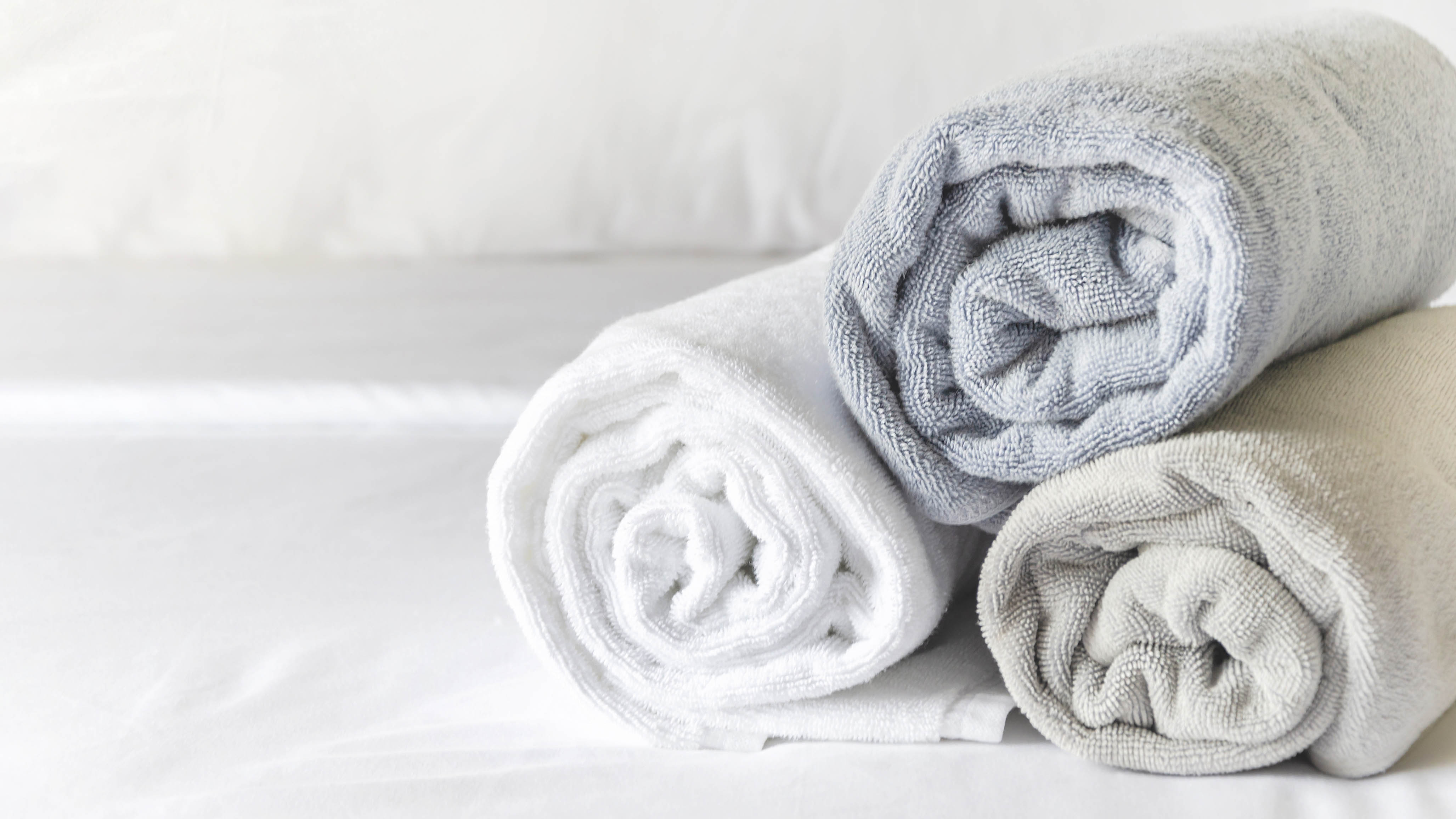
There’s nothing nicer after a refreshing shower, than wrapping yourself in a thick, fluffy towel. Drying towels in a dryer is one of the easiest ways to ensure they stay soft and fluffy. But it’s not the only way to keep your towels at their best.
Not everyone has access to one of the best dryers and even if you do, maybe you’re trying to cut down on using it, whether it's for financial or environmental reasons. So if you’re drying towels outside on a washing line or indoors on a drying rack, don’t worry, there are plenty of other things you can do to keep those towels fluffy.
Ensuring you have soft fluffy towels isn’t all about how you dry them, it’s also about how you wash them, too. And once you’ve mastered all the laundry and drying tricks to keep your towels soft, here’s how to fold towels to impress your guests.
1. Add an extra rinse cycle
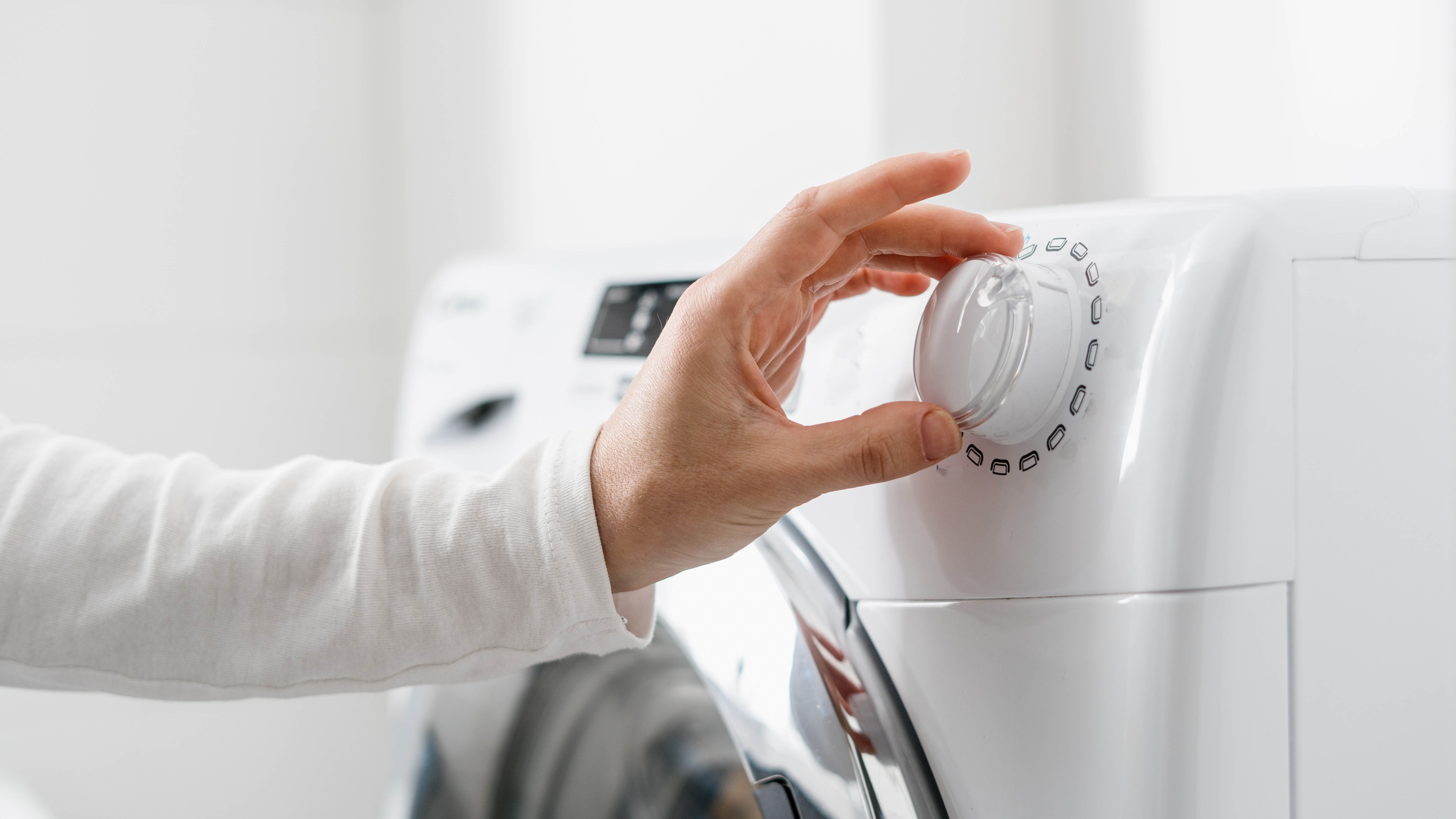
Sometimes towels become stiff due to a build up of detergents, minerals and other residues. There are several reasons why these things might accumulate on the fibers of your towels, and we address many of them as you scroll down.
However, if your washer is older or not performing well, it could be that it isn’t effectively rinsing the towel after the wash cycle. Programming an extra rinse when you start the washer is a good way to ensure all detergent is properly flushed out of the fibers. This is especially important if you’re washing lots of towels in one load.
Alternatively, if you suspect your towels have accumulated lots of detergent, fabric softener, or other residues over the years, wash them on a full wash cycle as hot as the care label allows — with no detergents at all. This will help to strip out some of the residues that have built up over time. You can then wash as normal following some of the other rules below to make sure you avoid future build ups.
And if it’s time to replace your washer, here’s our guide to the best washing machines.
Sign up to get the BEST of Tom's Guide direct to your inbox.
Get instant access to breaking news, the hottest reviews, great deals and helpful tips.
2. Use detergent and fabric softener sparingly
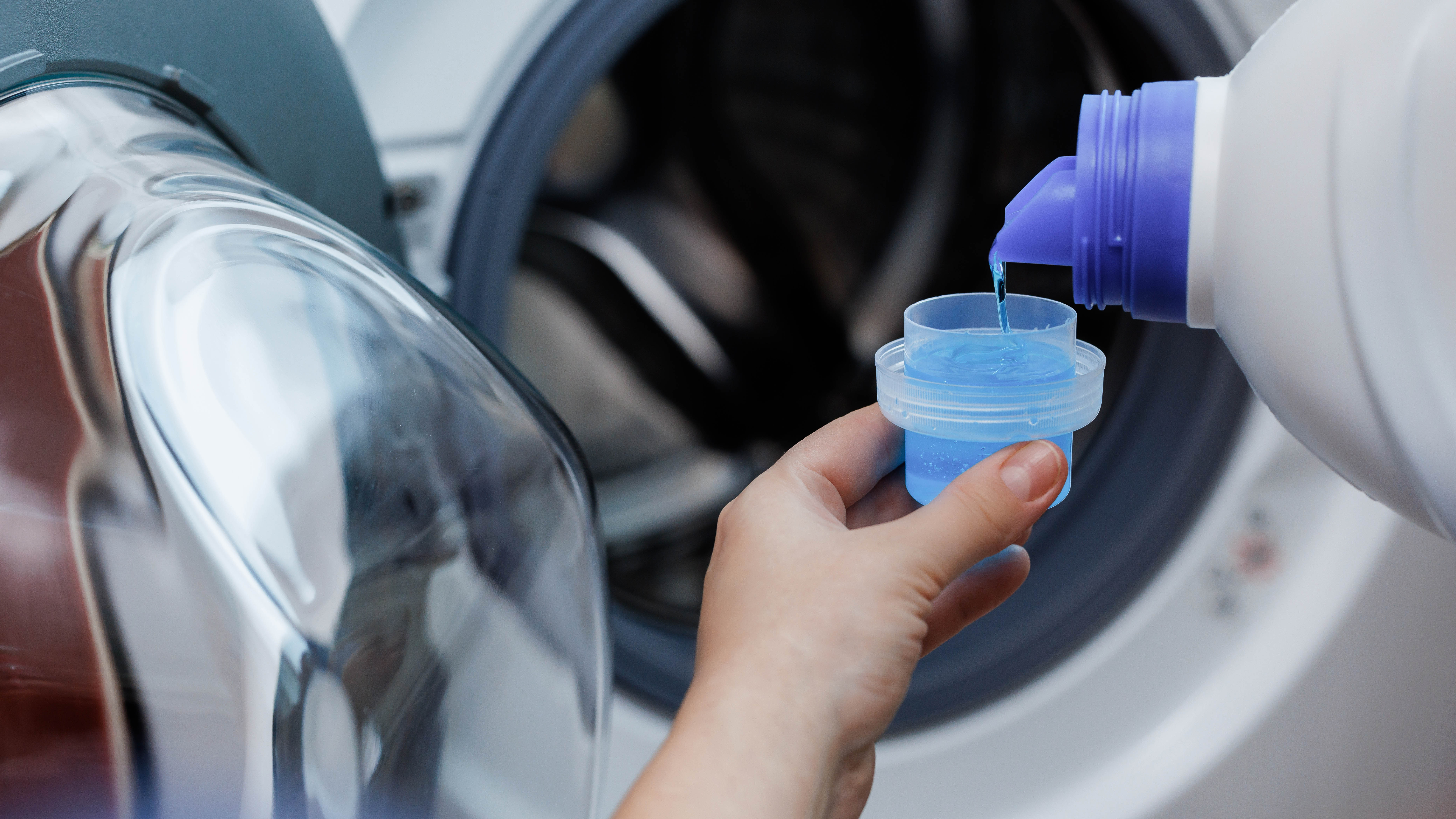
It’s all too easy to assume that adding lots of washing detergent will give you cleaner, more hygienic towels. However, if you use too much, it’s likely that some of it will remain in the fibers of your towels at the end of washing. As we suggested above, this accumulation of detergent can stiffen the towels, particularly over longer periods of time.
The temptation when towels stiffen is to over use fabric softener to remedy the problem. But like too much detergent, too much fabric softener can also leave residues in the towel fibers, reducing softness and absorbency.
So to avoid build-ups on your towels we’d advise checking the recommended detergent dose on the pack and halving it. And for best results, ditch the fabric softener altogether when washing towels — see below for our favorite alternative.
3. Add vinegar to the wash
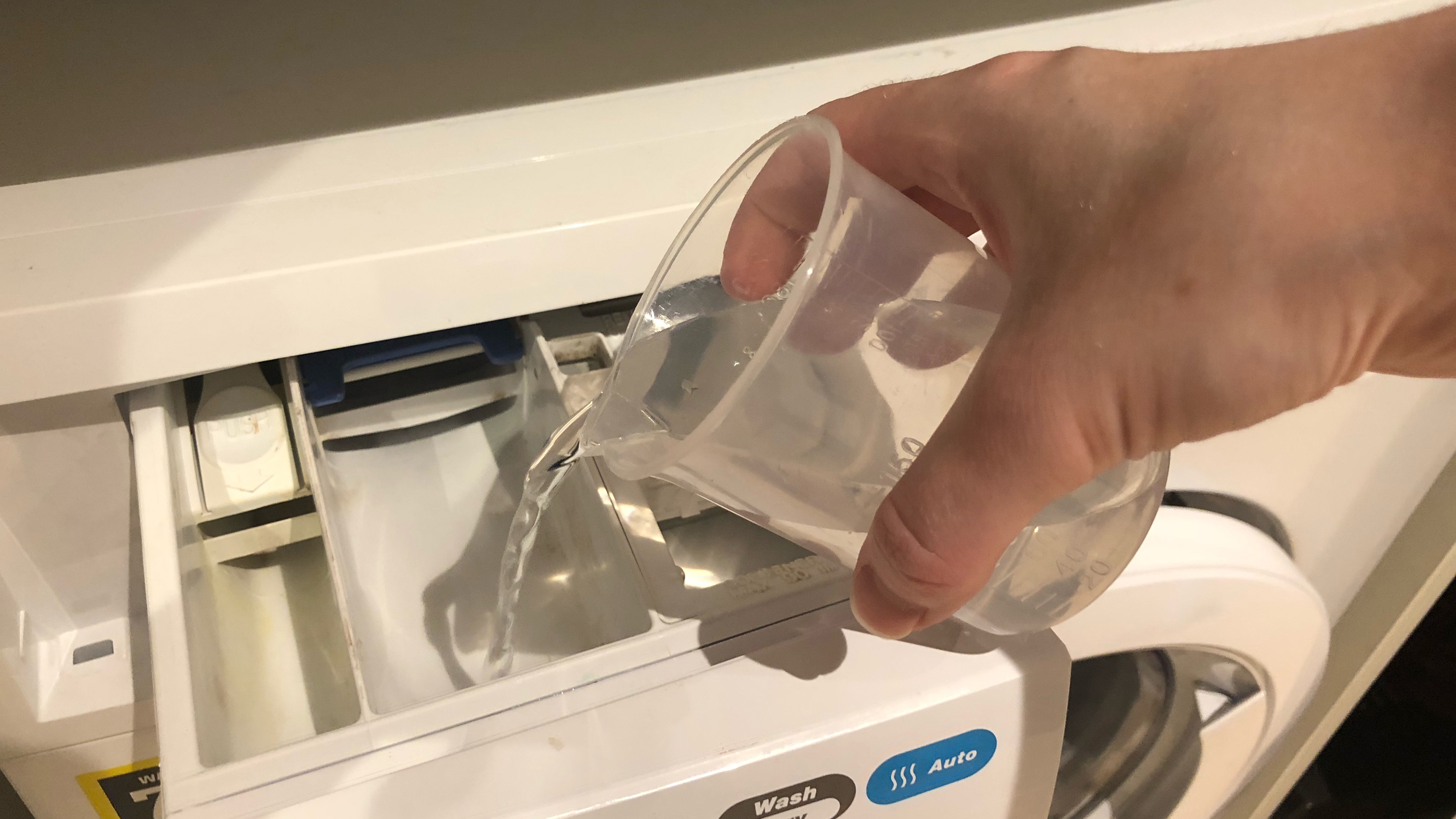
When it comes to washing towels, distilled white vinegar is your best friend. We recommend switching your fabric softener for white vinegar. The vinegar helps to break down mineral deposits, which are a particular problem if you live in a hard water area.
White vinegar also helps to strip excess detergent from the towels. So to refresh your towels and remove any built up residues, you can occasionally switch your usual washing detergent for a cup of white vinegar. Use this method periodically, to help keep towels soft and fluffy.
Don’t worry, the vinegar smell doesn’t linger and you won’t even notice it when you remove the towels from the washer. Likewise, white vinegar won’t damage the washing machine itself; in fact, using it frequently can help to reduce the amount of mineral deposits inside the machine itself. So really it’s a win-win.
Note: Do not mix or combine vinegar with bleach — this creates a lethal chlorine gas.
4. Avoid over drying
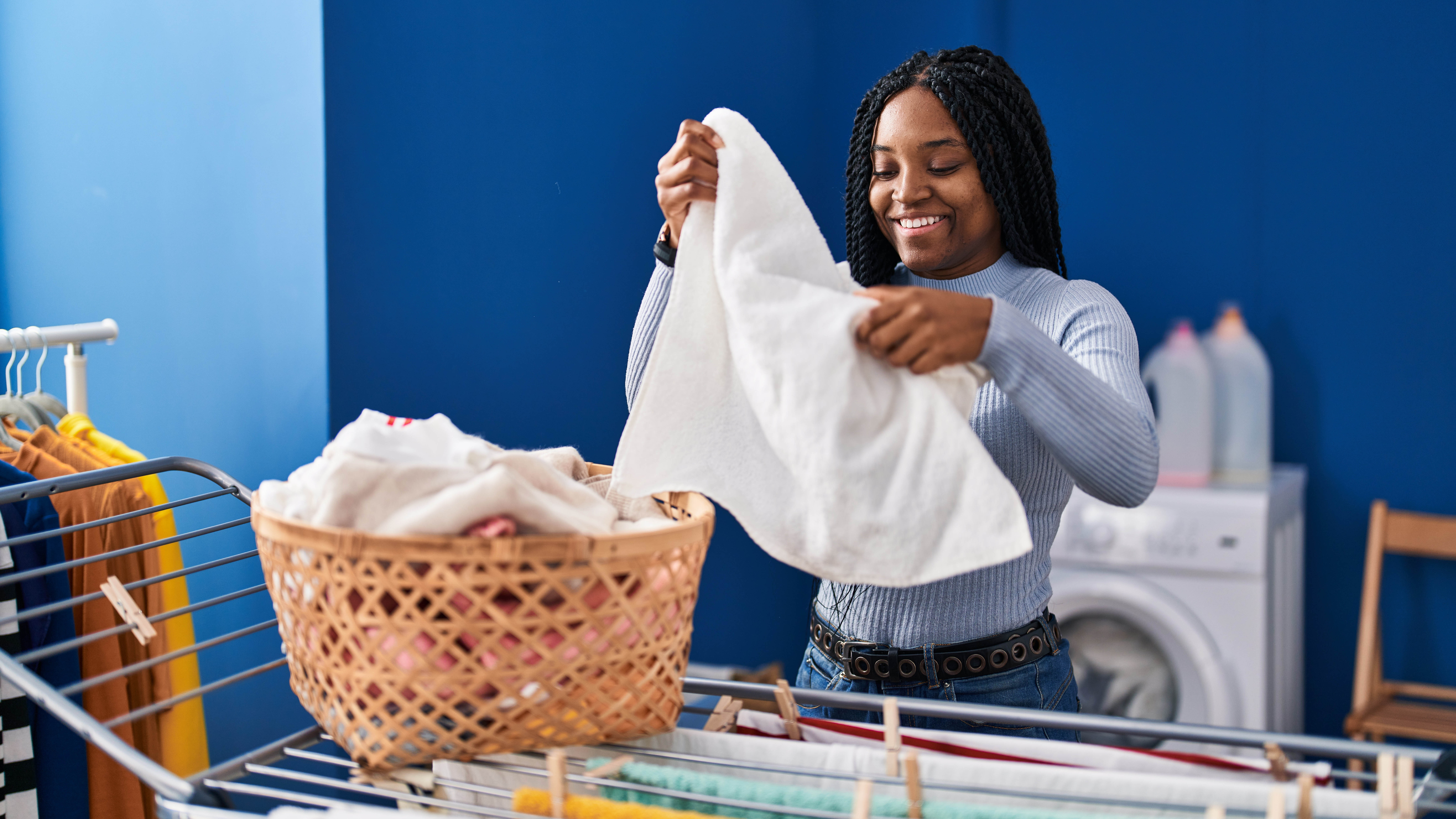
When line drying or air drying towels, the temptation is to err on the side of caution and give them as much time to dry as possible. After all, nobody wants damp, musty smelling towels. However, over drying can lead to stiff, scratchy towels.
As soon as towels become dry, remove them from the drying rack or washing line and fold them up. Ideally, if the fibers still have a tiny bit of moisture left in them, this will help avoid the stiff, overly dry hardness that can sometimes occur.
If you think the towels have a small amount of moisture left in them, and you’re worried they could become musty, avoid putting them away immediately. Leave them folded in an open place for a day or two before putting them away.
5. Give them a good shake
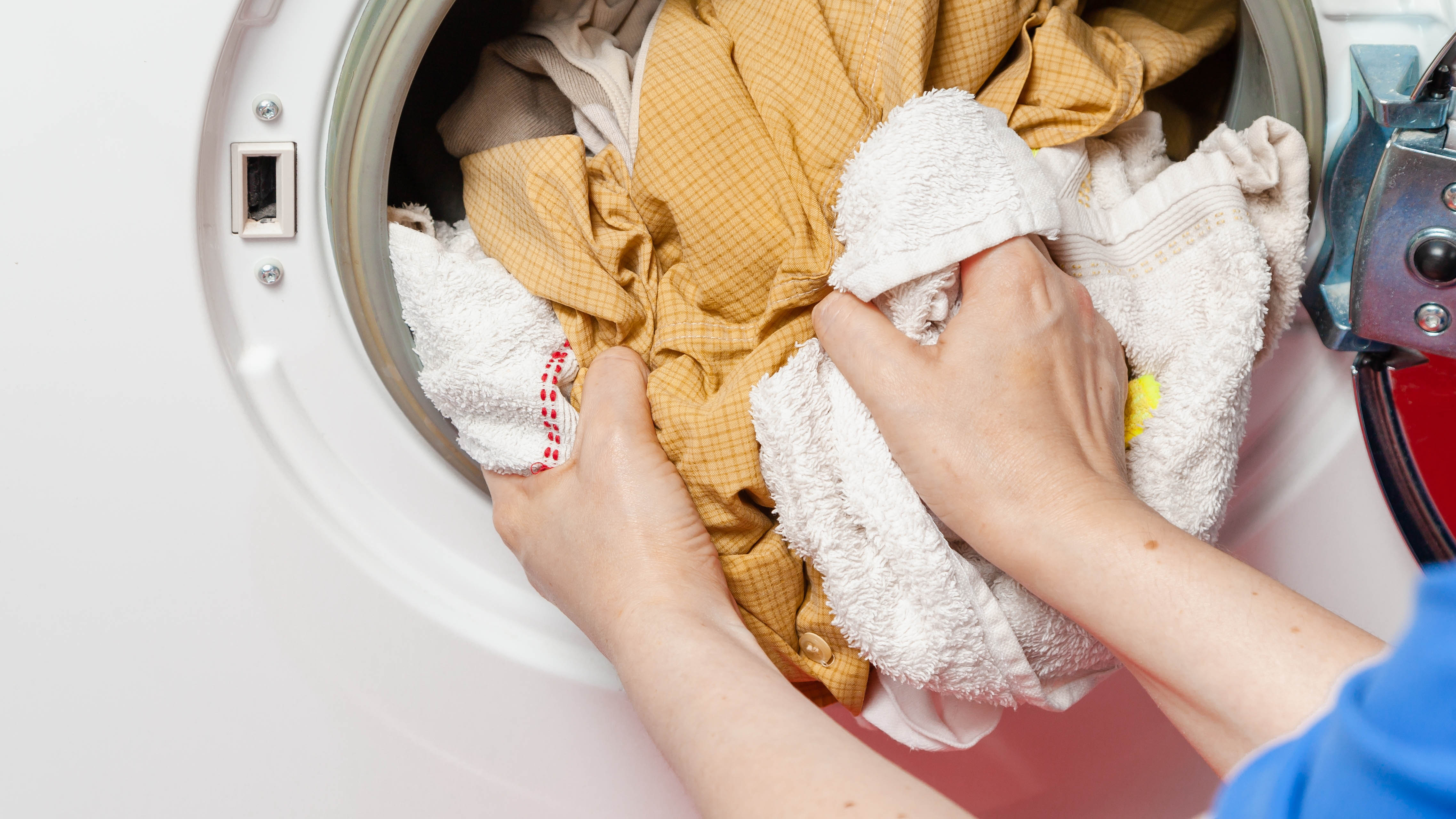
When removing towels from the washer, a vigorous shake will help to fluff up the fibers. And if you have time, a couple of good shakes mid way through drying won’t hurt either. It’s a simple trick, but shaking out the fibers can really help to stop your towels going crispy as they dry.
6. Check the care label
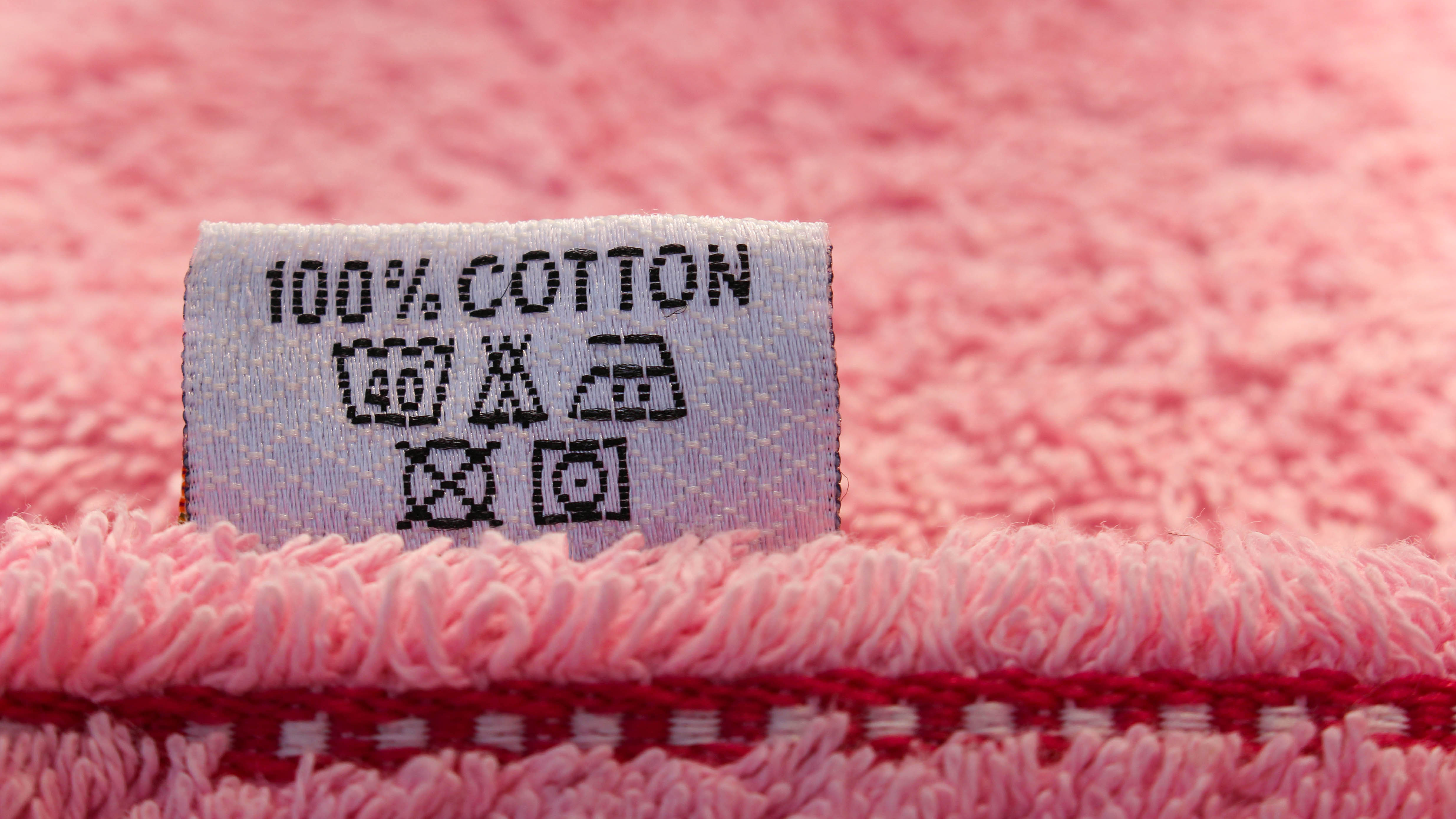
In addition to the mistakes above, washing incorrectly can impact the softness of your towels. To keep towels at their best, always check the laundry label and wash as directed — the laundry information is on there for a reason.
Don’t always assume that towels need a hot wash, or that simply because they are cotton, that they can cope with an aggressive wash cycle. It will depend on the brand and type of cotton.
Furthermore, don’t overload your washer. Towels become very heavy when saturated, so make sure they have plenty of space to move around freely during washing. This will also help fluff up the fibers in the wash and ensure detergent is rinsed out effectively.
For additional information we’ve written a whole separate guide on how to wash towels and in case you’re wondering, here’s how often you should wash towels.
7. Invest in better quality towels
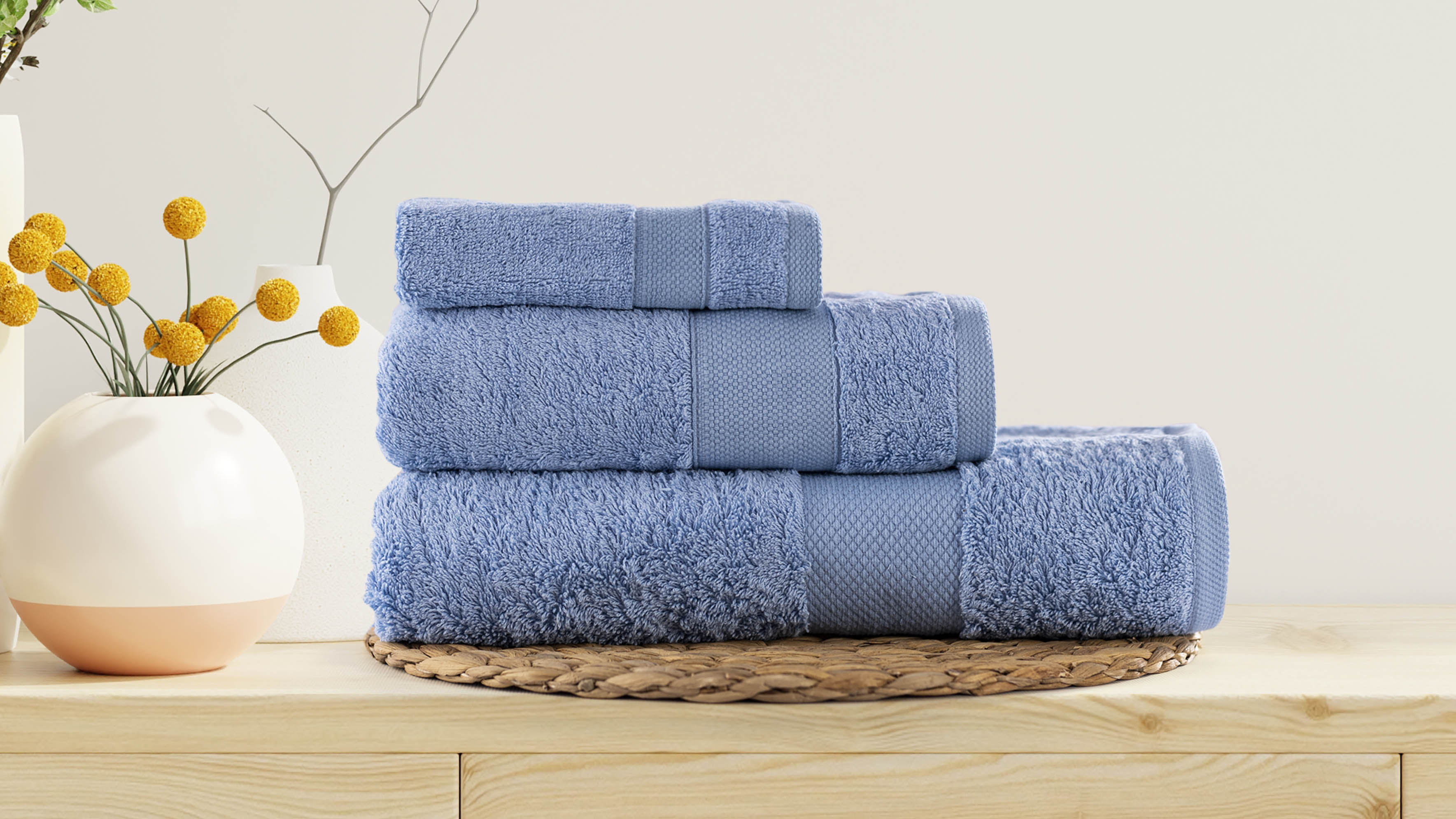
Sometimes after several years, towels deteriorate and it’s really hard to ensure they remain fluffy, no matter how hard you try. This is especially true for cheaper, lower quality towels. So if you want your towels to remain soft and fluffy for as long as possible, it’s worth investing in really good quality towels in the first place.
Look for thicker, heavier towels, made from 100% good quality cotton. There’s not necessarily anything wrong with budget towels, but if you spend a bit more on a trusted brand and choose the best quality you can afford, you will notice over time, they last longer and stay thicker and fluffier.
And if you follow all the washing and drying tips above, your new towels will be even more likely to stay in great condition for a long time.
For more info, check out our clothes dryer vs clothes rack dryer comparison.
More from Tom's Guide
Helen started reviewing home and kitchen appliances in 2007 at the Good Housekeeping Institute and has never looked back. She’s now freelance and reviews all sorts of appliances from her home in a pretty village in the UK. Despite having reviewed hundreds of coffee machines in her time, she’s only recently developed a love for coffee and a daily coffee habit, which makes tasting all those coffees much more enjoyable!

